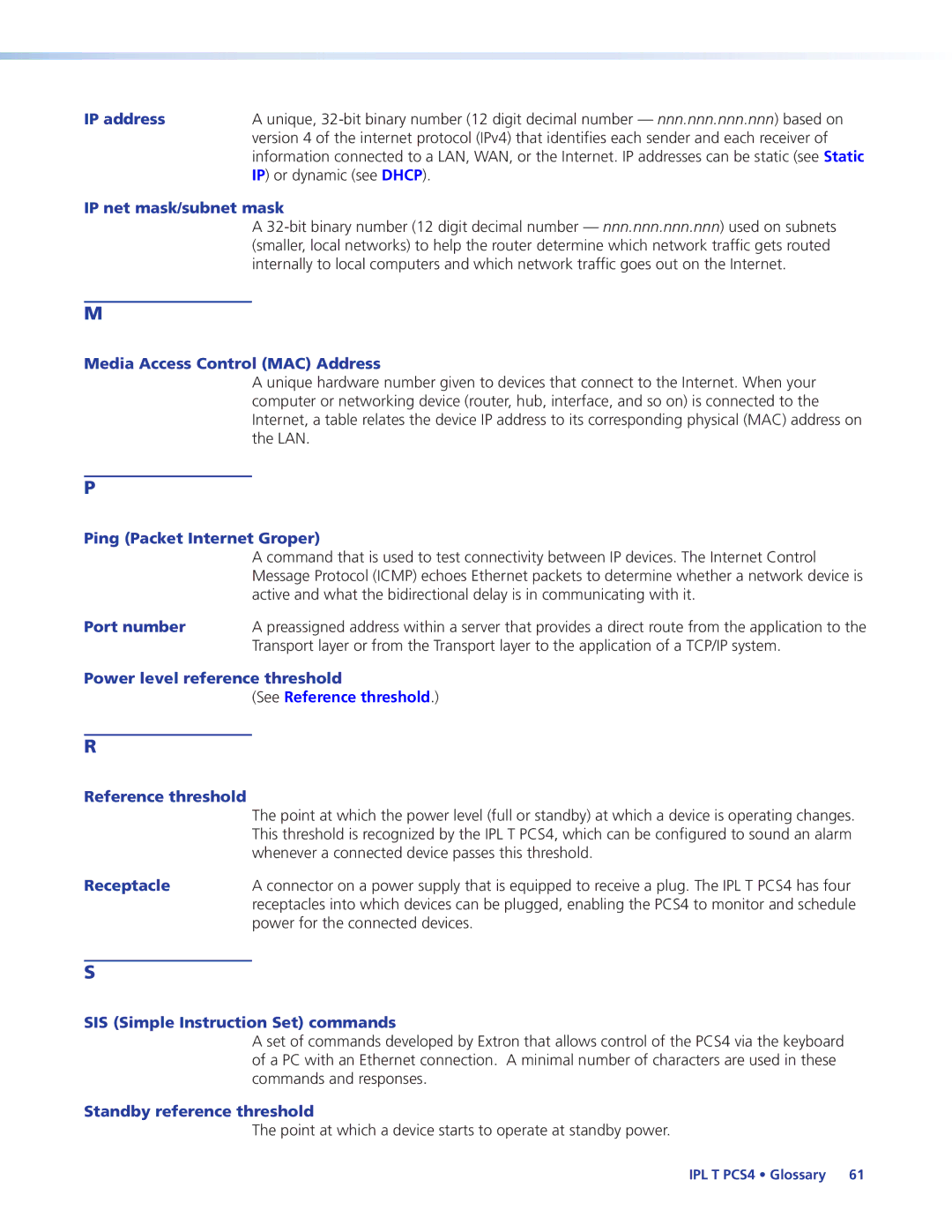
IP address | A unique, |
| version 4 of the internet protocol (IPv4) that identifies each sender and each receiver of |
| information connected to a LAN, WAN, or the Internet. IP addresses can be static (see Static |
| IP) or dynamic (see DHCP). |
IP net mask/subnet mask
A
M
Media Access Control (MAC) Address
A unique hardware number given to devices that connect to the Internet. When your computer or networking device (router, hub, interface, and so on) is connected to the Internet, a table relates the device IP address to its corresponding physical (MAC) address on the LAN.
P
Ping (Packet Internet Groper)
A command that is used to test connectivity between IP devices. The Internet Control Message Protocol (ICMP) echoes Ethernet packets to determine whether a network device is active and what the bidirectional delay is in communicating with it.
Port number | A preassigned address within a server that provides a direct route from the application to the |
| Transport layer or from the Transport layer to the application of a TCP/IP system. |
Power level reference threshold
(See Reference threshold.)
R
Reference threshold
The point at which the power level (full or standby) at which a device is operating changes. This threshold is recognized by the IPL T PCS4, which can be configured to sound an alarm whenever a connected device passes this threshold.
Receptacle | A connector on a power supply that is equipped to receive a plug. The IPL T PCS4 has four |
| receptacles into which devices can be plugged, enabling the PCS4 to monitor and schedule |
| power for the connected devices. |
S
SIS (Simple Instruction Set) commands
A set of commands developed by Extron that allows control of the PCS4 via the keyboard of a PC with an Ethernet connection. A minimal number of characters are used in these commands and responses.
Standby reference threshold
The point at which a device starts to operate at standby power.
IPL T PCS4 • Glossary 61
